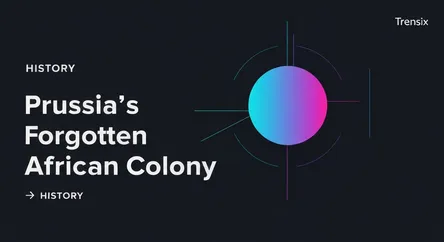History
Prussia's Forgotten African Colony

Discover the short-lived West African colony of Brandenburg-Prussia, a forgotten chapter in German colonial history and the transatlantic slave trade.
What is it?
The Brandenburger Gold Coast was a small colony established by the Margraviate of Brandenburg, later the Kingdom of Prussia, on the coast of present-day Ghana. It existed from 1682 until 1721. The colony was administered by the Brandenburg African Company and its main settlement was the fort of Groß Friedrichsburg, located at Cape Three Points. The primary purpose of the colony was to establish a direct trading post for Brandenburg-Prussia, giving it access to valuable resources like gold, ivory, and gum arabic. Crucially, it also served as a base for the state's participation in the transatlantic slave trade.
Why is it trending?
Historically, the Brandenburger Gold Coast is significant as it represents the first organized attempt by a German state to establish a colony and participate in the Atlantic slave trade. Founded by Frederick William, the "Great Elector" of Brandenburg, it was part of an effort to bolster the economic and political power of his state, which was still recovering from the Thirty Years' War. Though relatively small and short-lived compared to the colonies of other European powers, its existence demonstrates the broader European colonial ambitions of the 17th century. The colony's history is a reminder of the complex and often overlooked participants in the era of mercantilism and early colonialism.
How does it affect people?
For the local African population, the establishment of the Brandenburger colony meant direct engagement with a new European power. The Brandenburgers signed treaties with local leaders to gain their foothold. The primary impact was the intensification of the slave trade in the region, as the fort became a point of departure for enslaved Africans transported to the Americas. The legacy of the fort, now a UNESCO World Heritage site, and the shared history it represents, continues to be a subject of historical study and a tangible link between Germany and Ghana. Ultimately, King Frederick William I of Prussia, seeing it as an economic drain, sold the colonial remnants to the Dutch West India Company in 1721 for 7,200 ducats.